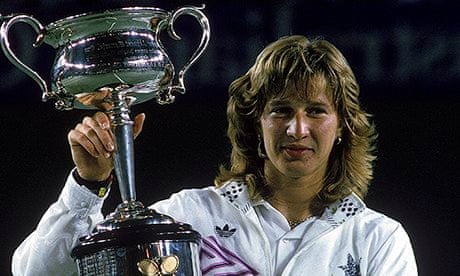D
Deleted member 762343
Guest
We like to think that a player who performs very well at AO will have a great season but that’s not always the case, that’s even offen the opposite.
In 2009, Nadal won AO for the first time after his crazy 2008 season. Then he won a couple of titles and had good results but clearly underperformed for an ATG. He even got defeated at RG in the fourth round because of an injury.
In 2010, Federer won AO for the fourth time after his great 2009 season in which he won RG for the first time. But after 2010 AO, he didn’t even reach any GS final in the rest of the year. That was the end of a series of 4 consecutive RG finals, 7 consecutive Wimbledon finals and 6 consecutive USO finals. That was the beginning of Federer’s first decline.
After his crazy 2011 season, Djokovic won AO 2012 after an epic match against Nadal. That’s the only GS he won that year, he had very good results during this season but wasn’t as strong as he was in 2011.
In 2018, Federer won his sixth AO after his very good 2017 season in which he won AO for the first time since 2010 and Wimbledon for the first time since 2012. Yet his 2018 season was disappointing despite some good results after AO and we don’t know if he can even reach a GS final again.
So the conclusion we can draw is that AO results are often reflective of the winner’s previous season. 2009 AO Nadal was 2008 Nadal in terms of level. AO 2010 Federer was 2009 Federer. 2012 AO Djokovic was 2011 Djokovic. And AO 2018 Federer was 2017 Federer.
Of course it’s not always the case but that’s often the case. So the fact that Djokovic won AO this year doesn’t mean anything, he’s just in his 2018 form. It doesn’t mean his 2019 season will be good.
In 2009, Nadal won AO for the first time after his crazy 2008 season. Then he won a couple of titles and had good results but clearly underperformed for an ATG. He even got defeated at RG in the fourth round because of an injury.
In 2010, Federer won AO for the fourth time after his great 2009 season in which he won RG for the first time. But after 2010 AO, he didn’t even reach any GS final in the rest of the year. That was the end of a series of 4 consecutive RG finals, 7 consecutive Wimbledon finals and 6 consecutive USO finals. That was the beginning of Federer’s first decline.
After his crazy 2011 season, Djokovic won AO 2012 after an epic match against Nadal. That’s the only GS he won that year, he had very good results during this season but wasn’t as strong as he was in 2011.
In 2018, Federer won his sixth AO after his very good 2017 season in which he won AO for the first time since 2010 and Wimbledon for the first time since 2012. Yet his 2018 season was disappointing despite some good results after AO and we don’t know if he can even reach a GS final again.
So the conclusion we can draw is that AO results are often reflective of the winner’s previous season. 2009 AO Nadal was 2008 Nadal in terms of level. AO 2010 Federer was 2009 Federer. 2012 AO Djokovic was 2011 Djokovic. And AO 2018 Federer was 2017 Federer.
Of course it’s not always the case but that’s often the case. So the fact that Djokovic won AO this year doesn’t mean anything, he’s just in his 2018 form. It doesn’t mean his 2019 season will be good.

